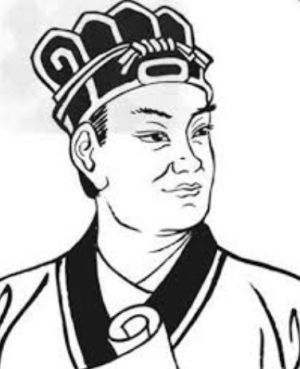Cai Lun: Difference between revisions
Joe Bloggs (talk | contribs) Created page with "alt=Cai Lun|thumb|Cai Lun '''<big>Cai Lun</big>''', also known as Ts'ai Lun, was a Chinese court official and inventor who is traditionally credited with the invention of paper around 105 AD. His contributions revolutionized the way information was recorded and shared, laying the foundation for the spread of knowledge and literacy. === Early Life and Career === Cai Lun was born around 50-62 AD in Guiyang Commandery (modern-day Leiyang, Hunan Provinc..." |
Joe Bloggs (talk | contribs) No edit summary |
||
| Line 3: | Line 3: | ||
=== Early Life and Career === | === Early Life and Career === | ||
Cai Lun was born around 50-62 AD in Guiyang Commandery (modern-day Leiyang, Hunan Province). He entered the imperial court as a eunuch in 75 AD and quickly rose through the ranks. By 89 AD, he had become the chief eunuch under Emperor Hedi of the Eastern Han Dynasty. | Cai Lun was born around 50-62 AD in Guiyang Commandery (modern-day Leiyang, Hunan Province). He entered the imperial court as a eunuch in 75 AD and quickly rose through the ranks. By 89 AD, he had become the chief eunuch under Emperor Hedi of the [[Eastern Han Dynasty]]. | ||
=== Invention of Paper === | === Invention of Paper === | ||
Latest revision as of 03:49, 5 November 2024

Cai Lun, also known as Ts'ai Lun, was a Chinese court official and inventor who is traditionally credited with the invention of paper around 105 AD. His contributions revolutionized the way information was recorded and shared, laying the foundation for the spread of knowledge and literacy.
Early Life and Career[edit | edit source]
Cai Lun was born around 50-62 AD in Guiyang Commandery (modern-day Leiyang, Hunan Province). He entered the imperial court as a eunuch in 75 AD and quickly rose through the ranks. By 89 AD, he had become the chief eunuch under Emperor Hedi of the Eastern Han Dynasty.
Invention of Paper[edit | edit source]
Around 105 AD, Cai Lun developed a method for making paper by combining macerated bark, hemp waste, old rags, and fishnets. This new material was superior to the silk and bamboo strips previously used for writing, as it was more affordable and easier to produce. Cai reported his invention to the emperor, who praised him for his ingenuity.
Impact and Legacy[edit | edit source]
Cai Lun's papermaking process quickly spread throughout China and eventually reached other parts of the world. The invention of paper had a profound impact on society, enabling the widespread dissemination of knowledge and the preservation of cultural and historical records. It played a crucial role in the development of education, literature, and communication.
Later Life and Recognition[edit | edit source]
In recognition of his contributions, Cai Lun was granted the title of marquis in 114 AD. However, his later years were marked by political intrigue and turmoil. After the death of Empress Deng in 121 AD, Cai Lun was implicated in a palace conspiracy and, fearing punishment, he took his own life.
Conclusion[edit | edit source]
Cai Lun's invention of paper is one of the most significant contributions to human civilization. His innovative approach to creating a versatile and accessible writing material has had a lasting impact on the world, shaping the way we record and share information. Despite the challenges he faced in his later years, Cai Lun's legacy endures through the enduring importance of paper in our daily lives.